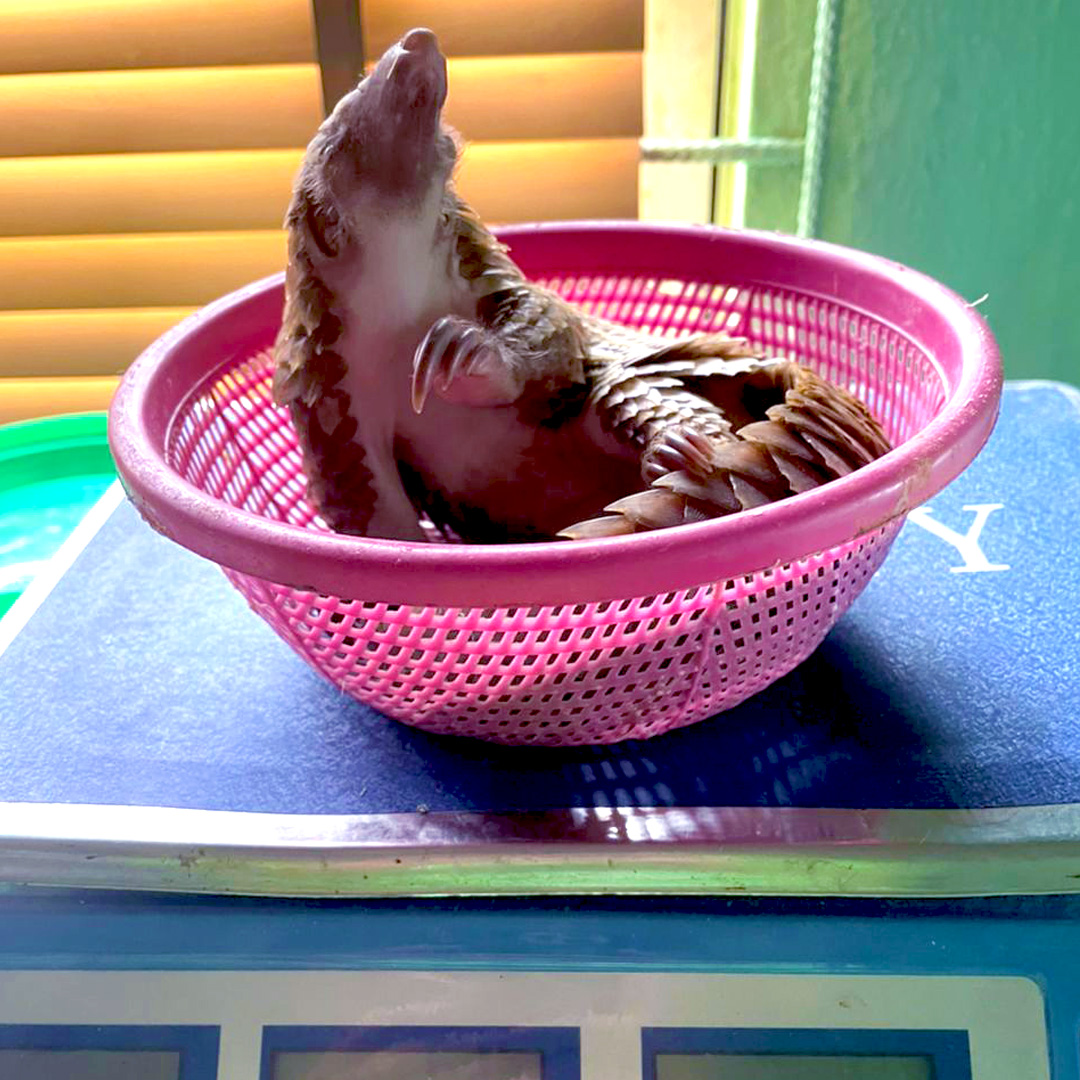
Our pangolin research
We strongly believe that without proper research, conservation is considerably less effective.
We therefore scientifically document the daily movements, behaviour, patterns and needs of the pangolins we care for. To help us, we host a variety of students, from undergraduates to post-doctorates, focusing on subjects including disease, health, behaviour, ranges, diet and rehabilitation assessments on release. We’ve also formed close collaborations with Nigerian universities, international vets, student vets and government officials, whose help is invaluable.
As a member of the IUCN SSC Pangolin Specialist Group, Pangolins International founder, Maria Diekmann, works continuously with other pangolin specialists around the world, sharing research methodologies and data to strengthen pangolin conservation globally.
Research in the Emerald Forest
With the help of the Emerald Forest Reserve, we’re currently developing major research programmes for species survival strategies, with action points including:
- Setting up a well-equipped veterinary clinic
- Designing an on-site laboratory for the collection and preservation of samples
- Biobanking all samples that can be collected ethically and without compromising an animal’s health or welfare
- Monitoring and researching the health of the forest and its occupants by using soil sampling, non-invasive camera traps and other specialist photography, including time-lapse, aerial and ground.
Anyone interested in using the Emerald Forest centre as a research base for any environmental subject is welcome to submit a proposal, which will be reviewed by the Scientific Board. Copies of any published papers are required to be submitted to us by email within one month of publication.